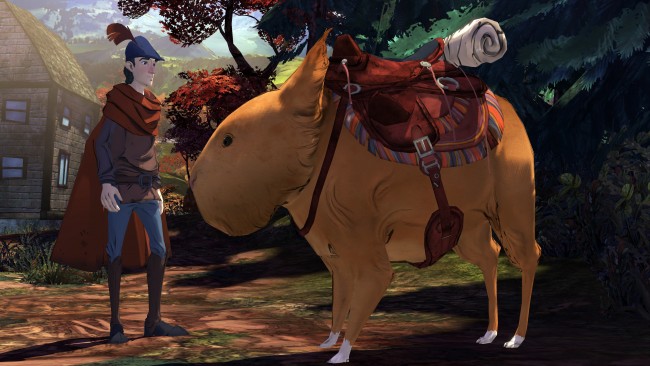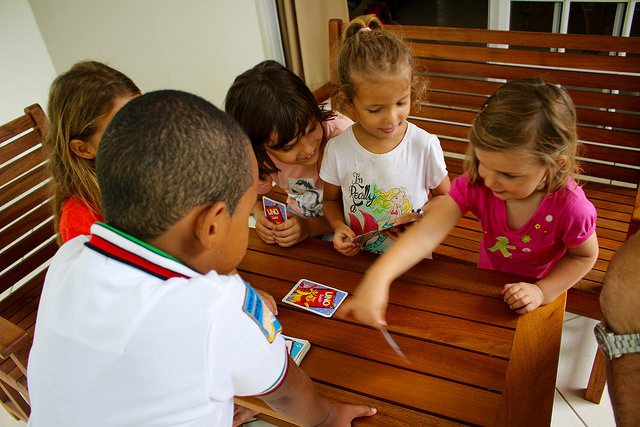Does your child remember everything about a recent vacation but virtually nothing about the history homework they just read? Can they tell you what they saw at the museum of science but struggle to remember what was in their science book? If your child seems to remember more when they see and do things (particularly hands-on activities) than when they read things, it only makes sense to find ways to use this type of activity to improve their memory. In this edition of the LearningWorks for Kids Beyond Games series we give you 5 fun ways to improve working memory for kids.

Navigating the map (without a map) in a game like King’s Quest helps players improve working memory
Play video games. Kids develop and practice working memory skills in video games in a surprising number of ways — remembering mission and quest objectives and details, navigating the map, recalling knowledge of allies and enemies. Keeping information in their minds from previous game experiences to guide them in making decisions in the present and completing multi-step actions while remembering sequences and goals involves many facets of working memory. Encourage your child to recall previous successes in video games and then apply them to a new in-game situation. Help her use self-instruction to talk herself through new steps and actions in the game. You can use games like Braid, Whispering Willows, and King’s Quest to practice working memory skills.
Play card games. Simple games like Go Fish require players to remember which cards someone asked for earlier in the game so that they know what might be in their opponent’s hands. Teaching the strategy to remember what others are playing in card games can be transferred as a memory skill in other areas of a child’s life. Many children with poor working-memory skills need help and instruction about how to apply these strategies, and that’s where you come in.
Play tabletop games. Uno, Memory, Concentration, and many other tabletop games challenge players’ working memories. Your child will get the most from these games if you model memory methods and share strategies that worked for you. Play on a regular basis, switching games to keep your child interested. Strive for noticeable improvement and play more complex games as they master easier ones.
Surf the Web. Do an Internet search for videos and images related to one of your child’s areas of interest. Encourage academic learning where you can. For example, if a child loves Minecraft, you could search for videos and images on anything from outdoor survival to building methods to video game design. Connecting new information to prior knowledge is the best way to cement pathways and retain information. Talk to your child about the things you find together and how they relate to their subject of choice, and then help her apply this strategy to the things she’s learning about in school.
Watch TV. If your child struggles to remember what she reads, have her exercise her working memory by watching and discussing. View some educational TV together, maybe a program from The History Channel or PBS. Find something that captures your child’s interest, record the program, and watch it when you have a chance to discuss it and then do related research together. You may be surprised at what she remembers and wants to learn about.
Read more about working memory or find games and apps that help improve working memory.
Featured image: Flickr user Nina




